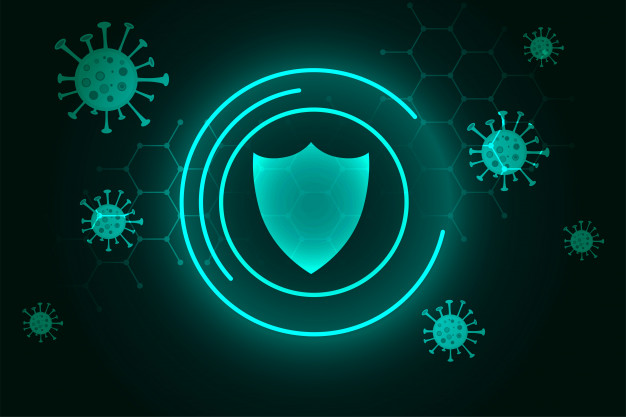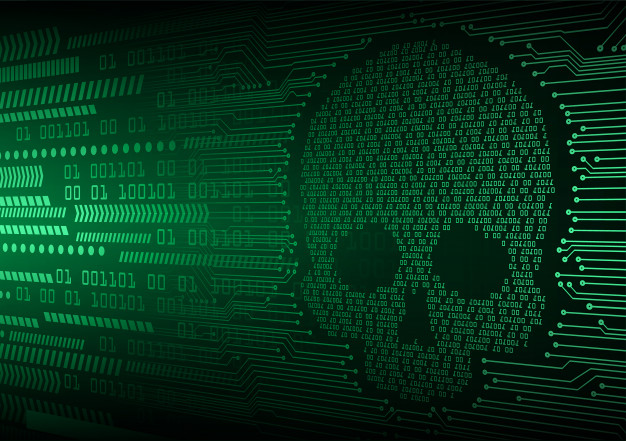How exactly an Antivirus Software Works?
Types, Functions and Limitations
The assurance of a decent Antivirus Software is fundamental
to keep up the security of any PC framework. That is the reason it merits
knowing how an antivirus functions, what its capacities are and, additionally,
its restrictions.
Antivirus programming attempts to cover the principle types
of assault on your gadget, be it a PC or a cell phone, and not having any sort
of insurance, knowing how an antivirus works, is stupid, since there are
numerous dangers that you can discover perusing the Internet or replicating
documents to your gadget. As of now, it is feasible to discover great free or
minimal expense antivirus. Antivirus should be refreshed regularly to guarantee
insurance against the most recent dangers. Practically all antivirus can be
designed to refresh naturally, it is prudent that this choice is empowered.
How an antivirus functions
All antivirus acts behind the scenes, examining each
document or page that is opened on the gadget where they are introduced.
Top Antivirus Software utilizes three techniques to ensure the
framework:
· Analyze our records by contrasting them with an
information base of pernicious programming or projects
· Monitor PC records as they are opened or made to guarantee
they are not contaminated. This is constant assurance against infections ,
which can influence framework execution.
· Periodically assess the whole framework to confirm if
there are bad records and wipe out existing infections, on the off chance that
they might have entered your PC.
The antivirus analyzes each document on the hard plate with
a word reference of known infections . In the event that any piece of code in a
record on the hard drive coordinates with the infection known to the word
reference, the antivirus programming kicks in, making one of the potential
moves.
Antivirus capacities
· Repair the record. The antivirus attempts to fix the
tainted record by eliminating the infection.
· Quarantine it. The antivirus will attempt to give security
against the infection, making programs unavailable to this record, forestalling
its spread and execution.
· Delete the record. The antivirus eliminates the record. On
the off chance that it can't be eliminated from the document, it will
consistently inquire as to whether we need to do this.
· Analyze the conduct of framework documents. For this
situation, the antivirus will monitor every one of the projects that are
running on a framework. For instance, if a program attempts to play out a
dubious movement, like composing information to an executable program, the
antivirus alarms the client of this reality and advises him regarding the
actions to take.
One of the upsides of examining records for dubious conduct
is that it offers security against new infections for which data isn't yet
accessible and are not piece of the rundown of known infections.
At the point when another infection is made, antivirus
programming organizations investigate its qualities, how to dispose of the
infection (if conceivable) and update the data set with this data to guarantee
that the antivirus can recognize new dangers.
Then again, it is basic for these sorts of projects to fuse
different kinds of highlights that permit them to extend the security they
offer, for example,
· Firewall. It goes about as a boundary between the PC and
the Internet. It is utilized to control who gets to the data put away on the
hardware and what data emerges from it to the outside.
· Analyze web addresses (URL's). It permits you to check if
a web address connects to a page that contains infections or if, actually, it
is protected.
· Email assurance. Sweeps approaching and active messages to
check that they don't contain infections. They normally incorporate an antispam
channel to forestall "garbage mail" from entering the inbox and an
enemy of phishing channel to recognize endeavors to imitate confided in pages,
banks, public organizations, esteemed organizations, and so forth
· Antispyware. Fit for identifying and dispensing with
spyware, that is, those that are introduced on the PC or gadget in a secret
manner to realize the client's perusing propensities, passwords and other
information, which could later be communicated to an unapproved element.
· Anti pop-ups. Its primary target is to abstain from
opening irritating spring up windows that may show up while perusing the
Internet. Different spyware can be covered up in a portion of these windows.
· Backups. Make reinforcement duplicates of the main
archives put away on your PC.
Limits of antivirus
Best Antivirus softwares, in spite of being continually refreshed
and offering an ever increasing number of functionalities, likewise have
certain limits with regards to guarding your PC framework.
Thusly, while choosing an antivirus you should remember a
portion of the undertakings that essential antivirus doesn't perform:
· They don't forestall Spam, which should be inspected with
explicit Anti-Spam programming.
· They don't keep direct assaults from a programmer on the
framework.
· They don't forestall crimes on the web. The antivirus
isn't competent without help from anyone else of forestalling these activities.
Regardless of its impediments, you ought to never stop the
antivirus activity since it will leave your framework more presented to outside
assaults.
Similarly, in the event that you don't refresh your
antivirus with the most recent infection definitions accessible on the
Internet, the product will turn out to be basically pointless, since it won't
distinguish or wipe out the latest infections.
Having an antivirus introduced on your PC quite often
implies that your PC hinders somewhat, that is, it works more slow than it
ought to. This is for the most part because of the way that antivirus programs
utilize numerous framework assets.
An overall general guideline in such manner is that the more
capacities the antivirus gives, the more assets, for example, RAM memory and
CPU cycles it will utilize.
Sorts of antivirus
Essentially, Antiviruses are separated into a few classes,
contingent upon the capacity for which they were planned: counteraction,
recognizable proof or end of infections.
• Preventive antivirus, which satisfy the capacity of
expecting disease by blocking and dissecting all information and yield tasks.
This sort of antivirus, to play out its undertaking, should be introduced on
the plate and dwell in the memory of the PC, so they will in general
burn-through a lot of assets that in the end hinders the PC.
• Identifying antivirus, whose primary capacity is to
recognize dangers that may as of now be dynamic in the framework. To accomplish
its central goal, this kind of antivirus breaks down all documents on the PC
looking for byte strings identified with malware.
• Decontaminating antivirus, whose intention is to dispose
of a disease when it has happened and assaulted the PC. A large number of these
Antiviruses will likewise attempt to return to the state before the disease
happened.
• Heuristic antivirus, which go about as a test system, that
is, they imagine the dispatch or the value of different projects to notice
their conduct and recognize conceivable dubious circumstances.
All in all, cutting edge security arrangements consolidate
these three kinds of antivirus, additionally coordinating different
functionalities.
Online antivirus
Furthermore, you can likewise utilize an online antivirus,
which shouldn't be introduced on the PC. The antivirus in the cloud isn't
anything other than customary antivirus, yet with the trait of not being
running on your framework, with the resulting saving of assets and cycle time.
Online antivirus is particularly fascinating on account of
having effectively endured a disease, since some infections and pernicious
projects forestall the right working of antivirus, and keep on acting after a
total framework check. Online antivirus can likewise be valuable when you need
to utilize obscure or dubious frameworks, like local area PCs. Another benefit
of antivirus in the cloud is that you generally have your infection data set
and internet searcher cutting-edge.
Also, an online antivirus permits you to consistently be
ensured against any infection danger with the most recent innovation,
regardless of whether you have an obsolete PC as far as equipment, in light of
the fact that the product essential for the sweep doesn't dwell on your
framework, however on the Internet.
In any case, it is critical to realize that online antivirus
devices are not intended to supplant antivirus programs , as they don't offer
continuous assurance. Likewise, it is important to separate between online
devices that play out a total investigation of the framework to identify and
take out tainted documents and those that are more centered around breaking
down records exclusively.
Antivirus introduced on your PC
Perhaps the best element that a conventional antivirus
offers contrasted with one facilitated in the cloud is the chance of being
utilized without an Internet association, with every one of the benefits that
this suggests.
In like manner, the customary antivirus framework has a
progression of vital attributes while overseeing everything identified with
contaminated records, for example, the capacity to make reinforcement
duplicates of them in the supposed " Quarantines " or the chance of
barring them from the I filter certain envelopes , capacities not offered by
cloud antivirus frameworks.
These security devices can go about as inhabitant antivirus
, ie. that are stacked into memory continually checking what's going on your
PC. Or then again they can be actuated every once in a while to play out a
framework sweep or assessment of a particular record or capacity unit.
.
(Read more)




Comments
Post a Comment